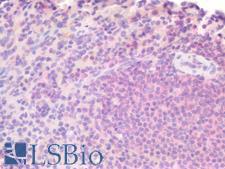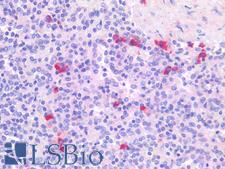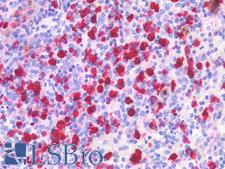Login
Registration enables users to use special features of this website, such as past
order histories, retained contact details for faster checkout, review submissions, and special promotions.
order histories, retained contact details for faster checkout, review submissions, and special promotions.
Forgot password?
Registration enables users to use special features of this website, such as past
order histories, retained contact details for faster checkout, review submissions, and special promotions.
order histories, retained contact details for faster checkout, review submissions, and special promotions.
Quick Order
Products
Antibodies
ELISA and Assay Kits
Research Areas
Infectious Disease
Resources
Purchasing
Reference Material
Contact Us
Location
Corporate Headquarters
Vector Laboratories, Inc.
6737 Mowry Ave
Newark, CA 94560
United States
Telephone Numbers
Customer Service: (800) 227-6666 / (650) 697-3600
Contact Us
Additional Contact Details
Login
Registration enables users to use special features of this website, such as past
order histories, retained contact details for faster checkout, review submissions, and special promotions.
order histories, retained contact details for faster checkout, review submissions, and special promotions.
Forgot password?
Registration enables users to use special features of this website, such as past
order histories, retained contact details for faster checkout, review submissions, and special promotions.
order histories, retained contact details for faster checkout, review submissions, and special promotions.
Quick Order
PathPlusTM BTLA / CD272 Antibodies
B- and T-lymphocyte attenuator (BTLA, CD272) is a transmembrane protein member of the immunoglobulin superfamily, with structural and functional similarities to cytotoxic T-lymphocyte associated protein 4 (CTLA4) and programmed cell death protein 1 (PD1). It is an inhibitory receptor that is involved in downregulation of the immune response. Polymorphisms in the gene may be associated with susceptibility to autoimmune diseases (eg, rheumatoid arthritis), systemic lupus erythematosus, type 1 diabetes mellitus, and cancer. BTLA is expressed in most lymphocytes (high expression in lymph nodes and spleen) and during activation of T cells, remaining expressed on T helper type 1 (Th1) but not Th2 cells.
References: Nat Immunol. 2003;4(7):670-679. doi: 10.1038/ni944; Arch Immunol Ther Exp (Warsz). 2015;63(1):73-78. doi: 10.1007/s00005-014-0300-3; Clin Dev Immunol. 2011;2011:305656. doi: 10.1155/2011/305656; Int J Immunogenet. 2009;36(1):65-68. doi: 10.1111/j.1744-313X.2008.00809.x; Breast Cancer Res Treat. 2010;120(1):195-202. doi: 10.1007/s10549-009-0462-6.
3 PathPlusTM Antibodies



☰ Filters
Products
Antibodies
(3)
Type
Primary
(3)
Target
BTLA / CD272
(3)
Reactivity
Human
(1)
Application
IHC-P
(3)
WB
(1)
IF
(1)
Host
rabbit
(2)
mouse
(1)
Product Group
PathPlus Cancer
(3)
Isotype
IgG2b
(1)
Clonality
monoclonal mc
(1)
polyclonal pc
(2)
Clone
3D11
(1)
Format
Unconjugated
(3)
Publications
No
(3)

Cancer
BTLA / CD272 Mouse anti-Human Monoclonal (3D11) Antibody
Human
IF, IHC-P, WB
Unconjugated
50 µl/$375

Cancer
Fast Shipping
BTLA / CD272 Rabbit anti-Human Polyclonal Antibody
IHC-P
Unconjugated
50 µg/$395

Cancer
Fast Shipping
BTLA / CD272 Rabbit anti-Human Polyclonal Antibody
IHC-P
Unconjugated
50 µg/$395
Viewing 1-3
of 3
product results











